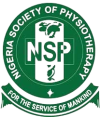Nigeria Society of Physiotherapy (NSP) Guidelines for Mentoring Program
(The Guidelines)
Introduction:
NSP Mentoring Program will involve the exchange of knowledge between senior colleagues and Younger Population that will include and not limited to physiotherapist between the year range 0-10 years post-graduation. This is specifically the transfer of knowledge gained through personal experiences.
It is designed to build individual relationships between experienced PHYSIOTHERAPIST both in the public and private practice and mentee (protégé) striving to succeed in their choice career path.
It will be structured to identify and meet the developmental and professional growth needs of the younger protégé or mentee
The Pathway of Growth
Academics
Business and entrepreneurship
Research
Clinical mentorship
Advocacy and Politics
Goals and Objectives:
The goal of the mentorship program is to provide participants with the necessary tools and knowledge to help establish a successful mentor-mentee relationship and also encouraging personnel to utilize the Individual Development Plan and training available as approved by the governing council of NSP
Guidelines:
- Set up Mentoring Committee across state chapters
2 Develop mentoring program within the area to reflect the goals and aspiration of the younger colleagues
- Promote mentoring program, discuss the program informally and formally with as many people as possible, to begin to arouse interest and design awareness campaigns in schools for the undergraduates and also during internship and NYSC this will help to identify both potential mentors and mentees
4 Develop and draft general announcement, guidelines, chronology, flyer, application forms, and evaluation criteria.
Mentoring Process:
The process requires a high level of communication between Mentor and Mentee. The process provides an opportunity to enhance natural skills and build strengths in weaker areas.
The Mentoring program will takes many forms. It can be formal, informal, planned or spontaneous
The Mentoring Process will be done by NSP committee on mentorship and their job will involve
- Developing resource list with names of mentors and their areas of strength
- Assign mentor to mentee and notify them
- Check in with each pair to ensure that both people want to proceed
- Conduct follow up by NSP
- Evaluate program from time to time by NSP
- Recognize all participants publicly at OGMs, AGMs and conferences
Roles and Responsibilities of Mentors:
- Acclimatizing the mentee into the culture and values of NSP and physiotherapy
- Actively promoting to physiotherapist colleagues the importance of the Code of Ethics and Core Values of our profession
- Actively promoting Nigeria society of Physiotherapy and the physiotherapy profession.
- Being open to working as a mentor to the mentee
- Clarifying expectations and instilling accountability for support of NSP’s positions, standards, guidelines, policies, and procedures
- Creating a collegial atmosphere that provides responsiveness and respect for the mentee
- Consistently demonstrating best practice in physiotherapy
- Seeking training and education to further skills in mentoring
- Modeling and promoting the importance of membership and active participation in the affairs of NSP
- Encouraging leadership development in the mentee’s chosen arena
In summary the Nigeria Society of Physiotherapy (NSP) Mentorship program employs the mentors to establish shared expectations by being explicit about the expertise and guidance that you are willing to provide and also Identifying preferences, this will create a pathway on how you will communicate and also frequency and duration of meetings,.
We will also encourage both parties to provide positive and constructive feedback and also Create a safe and welcoming environment for the mentee
Responsibilities of Mentees:
- Identify knowledge and skill gaps
- Establishing career goals for lifelong learning, both short and long term
- Identifying specific experimental opportunities
- Identifying potential junior and senior mentors who may be physiotherapists, Business owners, private practitioners, academicians who have compatible interests
In summary, the mentee will take the initiative in reaching out to mentors and also be responsible for organization by Identifying the goals and topics for each session and managing the meeting schedule
Regularly review and assess progress towards goals. The mentee will self-reflect to identify the types of guidance or expertise they are seeking
Characteristics of a Successful Mentor-Mentee Relationship
- Reciprocity: through bilateral nature of mentoring and wanting to make relationship mutually rewarding
- Mutual Respect: Respect for each other’s time, effort, and qualifications is sacrosanct
- Clear expectations: Every expectations of the relationship are clearly outlined at the initial meeting and revisited throughout the relationship and both parties are held accountable to these expectations
- Personal Connection: Connection among the mentor and mentee should be mutually beneficial and Should have the “same chemistry”
- Shared Values: Mentor and mentee should have shared values around their approach to research, clinical work, Business and personal life

